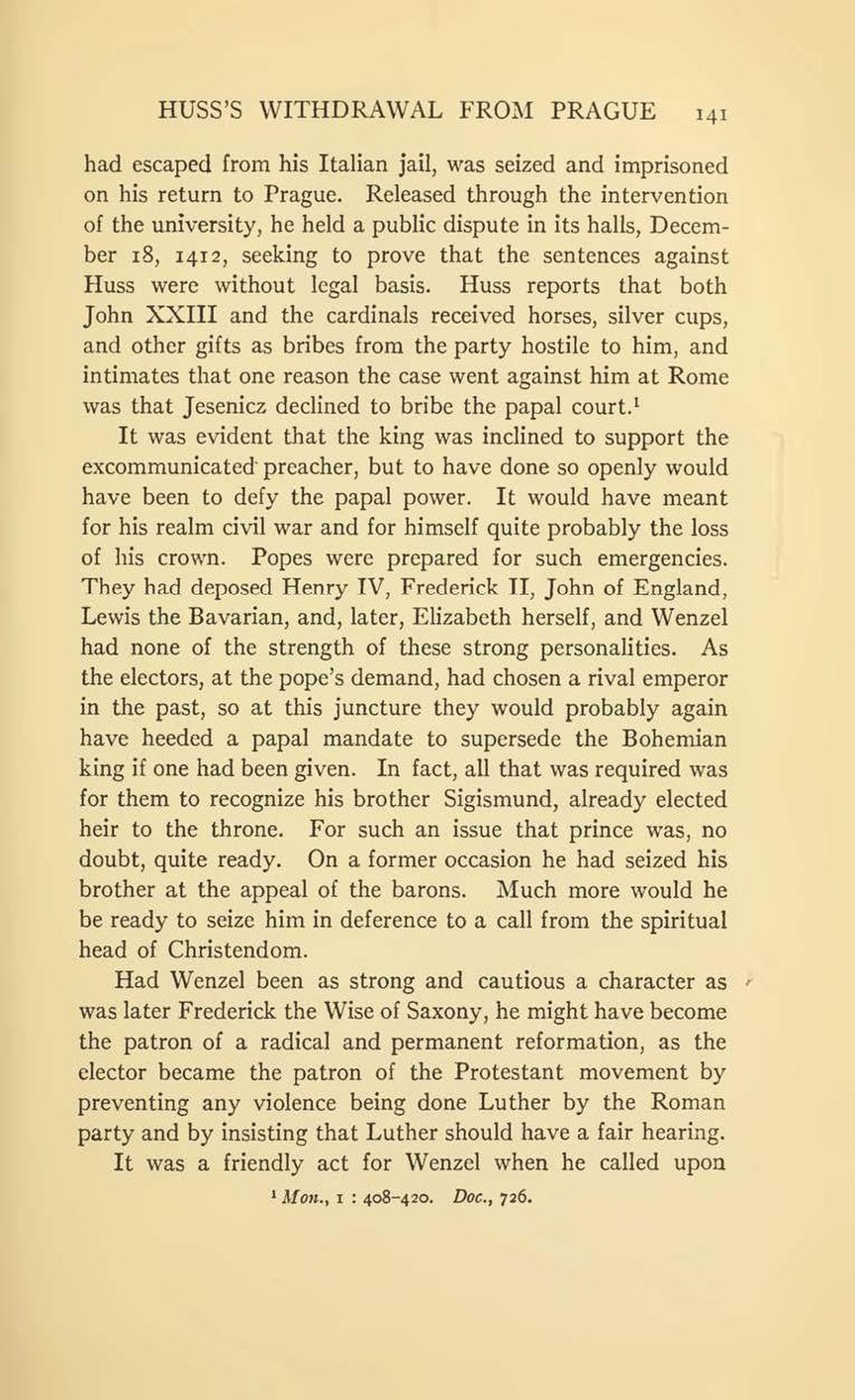had escaped from his Italian jail, was seized and imprisoned on his return to Prague. Released through the intervention of the university, he held a public dispute in its halls, December 18, 1412, seeking to prove that the sentences against Huss were without legal basis. Huss reports that both John XXIII and the cardinals received horses, silver cups, and other gifts as bribes from the party hostile to him, and intimates that one reason the case went against him at Rome was that Jesenicz declined to bribe the papal court.[1]
It was evident that the king was inclined to support the excommunicated preacher, but to have done so openly would have been to defy the papal power. It would have meant for his realm civil war and for himself quite probably the loss of his crown. Popes were prepared for such emergencies. They had deposed Henry IV, Frederick II, John of England, Lewis the Bavarian, and, later, Elizabeth herself, and Wenzel had none of the strength of these strong personalities. As the electors, at the pope’s demand, had chosen a rival emperor in the past, so at this juncture they would probably again have heeded a papal mandate to supersede the Bohemian king if one had been given. In fact, all that was required was for them to recognize his brother Sigismund, already elected heir to the throne. For such an issue that prince was, no doubt, quite ready. On a former occasion he had seized his brother at the appeal of the barons. Much more would he be ready to seize him in deference to a call from the spiritual head of Christendom.
Had Wenzel been as strong and cautious a character as was later Frederick the Wise of Saxony, he might have become the patron of a radical and permanent reformation, as the elector became the patron of the Protestant movement by preventing any violence being done Luther by the Roman party and by insisting that Luther should have a fair hearing.
It was a friendly act for Wenzel when he called upon
- ↑ Mon., 1: 408–420. Doc., 726.
